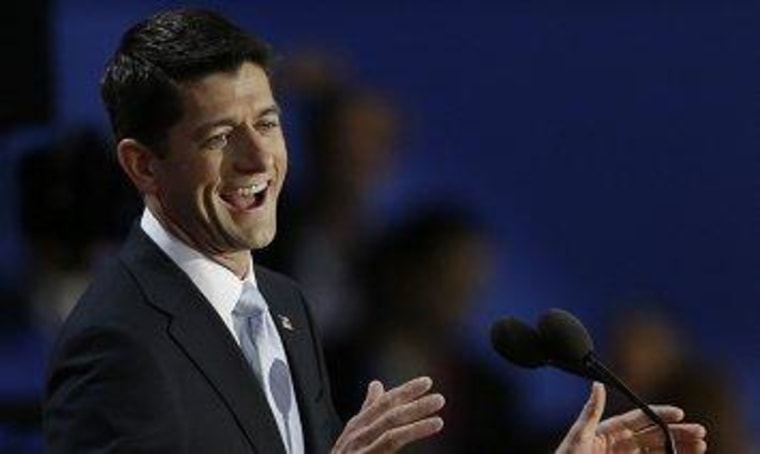When House Republicans pushed the nation towards a government shutdown over the weekend, they passed a measure that would delay the Affordable Care Act for a year. It was, of course, only natural to wonder what the point of a one-year delay might be.
Rep. Trey Radel (R-Fla.) appeared on MSNBC on Saturday and shed some light on the subject. As the far-right freshman argued, if Republicans can keep millions of Americans from receiving benefits for another year, the party can try to win the Senate in the 2014 midterms, at which point they can try a new effort to eliminate the health care benefits altogether.
It is, in other words, a play for time -- the 2012 elections didn't work out, so if they stall, maybe they can permanently prevent millions of families from having access to affordable health care. That's why a one-year delay has become such a priority.
Consider a related quote from House Budget Committee Chairman Paul Ryan (R-Wis.) last week.
"The reason this debt limit fight is different is, we don't have an election around the corner where we feel we are going to win and fix it ourselves. We are stuck with this government another three years."
And so, the reasoning goes, the party feels compelled to pursue extortion strategies precisely because voters didn't give Republicans the governing power they wanted.
You've probably heard of post-truth politics. You're hopefully also familiar with post-policy Republicans. But Dave Weigel characterized remarks like Ryan's as evidence of "post-democracy Republicans," and it's an important point.
Radel was talking about a Republican-imposed government shutdown and Ryan was referencing a Republican-imposed debt-ceiling crisis, but they were both pointing to the same underlying phenomenon: GOP lawmakers feel justified in creating a series of deliberate crises because they lost at the ballot box. If only Americans had elected them, they wouldn't need to threaten us.
As Jon Chait put it, Paul Ryan's argument is that Republicans need to force Obama to accept their agenda, "not in spite of the fact that the voters rejected it at the polls but precisely for that reason."
Democracies really aren't supposed to work this way.
